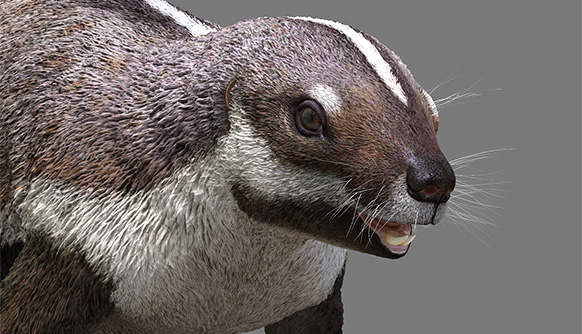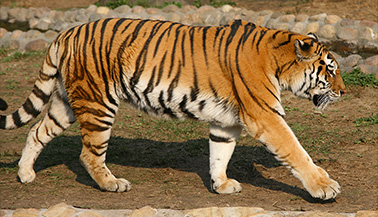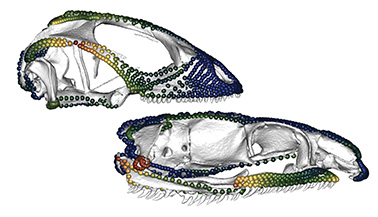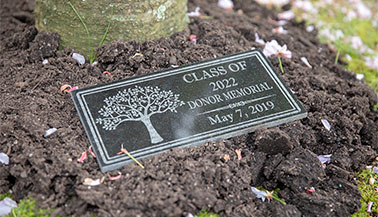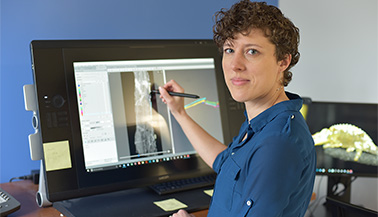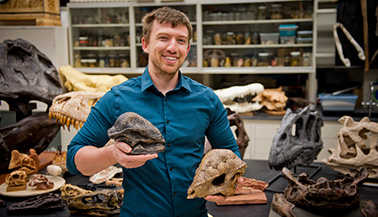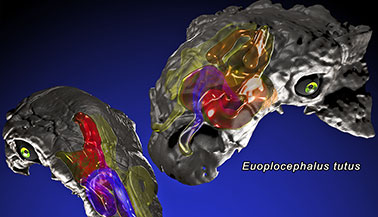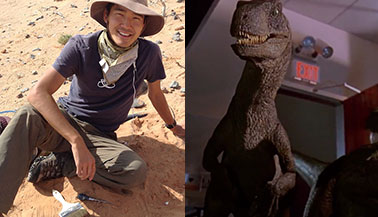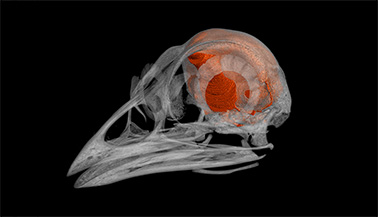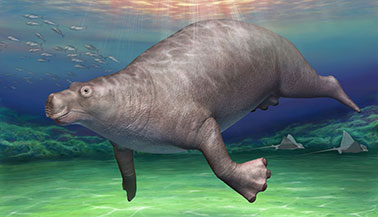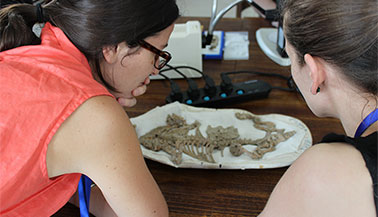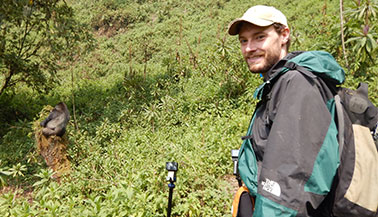Prehistoric “Crazy Beast” Unlocks an Evolutionary Mystery
The discovery of Adalatherium, a possum-sized mammal from Madagascar, provides new insights on the diversity of the mammals living on the ancient southern supercontinent Gondwana.
Smooth Walkers: Study Explains Bird and Mammal Strides
Assistant Professor of Anatomy Michael Granatosky’s research suggests that mammals’ and birds’ finely tuned nervous system played a vital role in their nimble strides.
Q&A: How Lizards and Snakes Got Their Skull Shapes
In a new study, Assistant Professor Akinobu Watanabe and a team of researchers discover that diet and habitat played a role in the evolution of snake and lizard skulls.
Medical School Class of 2022 Honors the Selfless Gift of Whole Body Donation
Donor memorial ceremonies at both the Long Island and Jonesboro NYIT College of Osteopathic Medicine locations honored those who donated their bodies to science.
Faculty Profile: Julia Molnar
Faculty Profile: Jason Bourke
What’s in a nose? When it comes to dinosaurs, Associate Professor Jason Bourke, Ph.D., has the answers. His research on dinosaur biology and behavior is shaping modern paleontology.
Dinosaurs Chilled Out With Built-In Snout A/C
How did gigantic, heavily armored dinosaurs avoid overheating in the warm Mesozoic climate? A research team led by Jason Bourke, Ph.D., assistant professor of basic sciences, NYITCOM at A-State, have posed a new theory: Dinosaurs came equipped with an intricate cooling system in their snouts.
Video: Akinobu Watanabe, Ph.D., on the Myths and Truths of Jurassic Park
Can a dinosaur open a door? If you don’t move, can you fool a T-Rex? Assistant Professor Akinobu Watanabe, Ph.D., debunks some of the most fantastical scenes in the iconic dino-centric film.
Throwing Light on STEM Innovation
NYIT researchers received a $426,621 grant from the National Science Foundation for a micro-computed tomography machine, which will allow them to explore the internal spaces and structures of specimen at the microscopic level.
Q&A: Brian Beatty on the Mammalian Fossil Formerly Known As a Dinosaur Bone
Associate Professor Brian Beatty, Ph.D., and a group of Japanese scientists rediscover a bone that was once believed to belong to a dinosaur. The fossil is actually that of a femur from the ancient mammal Paleoparadoxia.
Q&A: Simone Hoffmann on Early Mammal Fossil Discoveries in China
Paleontologists are rethinking what they know about early mammals thanks to new fossils discovered in China. Assistant Professor Simone Hoffmann, Ph.D., talks about their significance and what this means for future research.
Video: Adventures in Research
In a Facebook Live session, Assistant Professor Nathan Thompson, Ph.D., talks to medical student Taner Celebi about taking his lab on the road.
